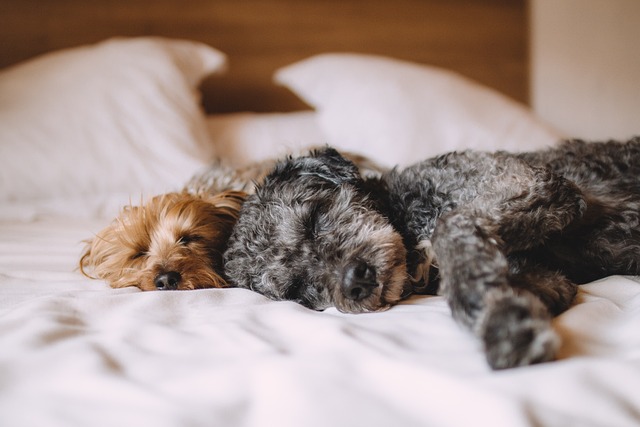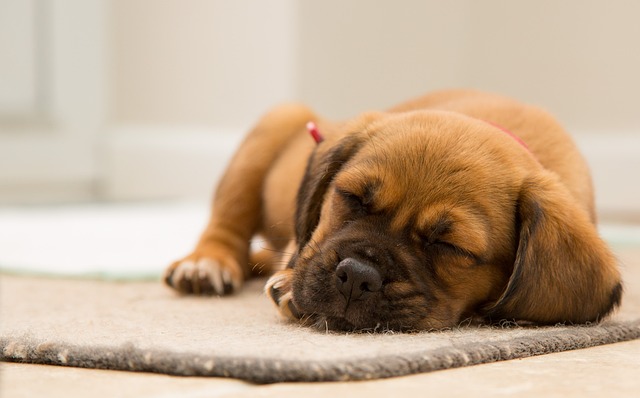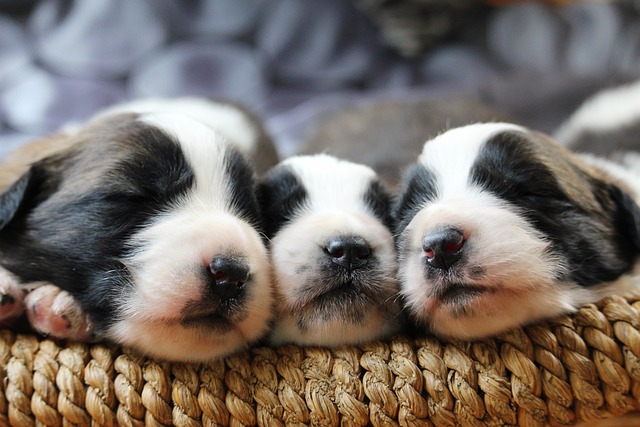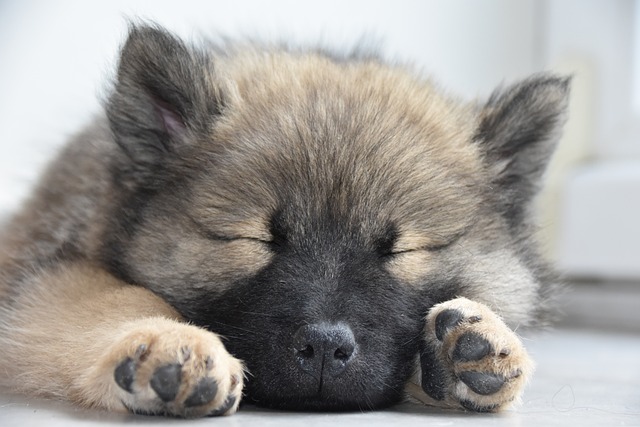
Does My Dog Sleep Too Much
Is there such a thing as too much sleep? When should pet owners be concerned about a drowsy dog? Animalia discusses appropriate canine sleep schedules in this useful guide.

Health & Science
11/08/2022
6 min read
Sleeping is more than a biological necessity for dogs, it’s practically a pastime. Your dog may never successfully catch their tale, but they’ll spend about two-thirds of their life catching Zs. From quick cat (or dog) naps to nightly slumbers, all those hours of shut-eye add up.
Not all sleep is created equal, however, and sometimes dogs get too much rest throughout the day. Dozing for extended periods could even point to what’s known as a ‘polyphasic sleep pattern.’ Too much sleep and a dog may miss out on important time spent exercising and socializing.
The importance of sleep for a growing dog
Good sleep is vital for your dog’s health and well-being. Sleep provides time for the body to replenish and refuel itself. It can help with growth, digestion, cognitive function, metabolism, and your dog’s immune system. A lack of quality sleep can result in drowsiness throughout the day, reduced attention span, and decreased appetite. Poor sleep can also lead to increased stress levels and anxiety, impacting your dog’s behavior in the long term.

In addition to these adverse effects, poor sleep can negatively impact development later in life. A lack of good sleep during a dog’s early days can affect the development of its brain.
Pay close attention to your dog’s sleeping patterns and make sure they are getting enough quality rest. The more rest your dog gets, the more energy they have to play and exercise. A puppy that sleeps through the night will grow up to be an adult dog that learns better, is more social, and is less anxious than a restless pup.
Puppy vs. senior dog
The American Kennel Club says that puppies can sleep as much as 20 hours a day. Once your dog is out of the puppy stage, expect an average of 14 hours or so of sleep. As your dog ages past about the age of 7, it’s normal for her to sleep more. Older dogs sleep a lot more for a variety of reasons: they tire more easily from exertion, they may have arthritis and not want to move as much, or they may be sluggish from slower metabolism caused by something like hypothyroidism.

Small vs. large breeds
Evidence does seem to suggest that large breeds sleep a lot more than small breeds do, although that evidence is limited, as there haven’t been many studies on the subject. However, veterinarians generally agree that larger dogs require more metabolic energy to keep their bodies going, and they also require more sleep to recover from activity. Smaller dogs don’t have to expend the energy to move their bodies around as large dogs do, so they don’t need to recover through sleep quite as much.
Different types of sleeping patterns
There are two types of sleeping patterns for dogs:
- Circadian
- Homeostatic
The circadian rhythm refers to the natural 24-hour cycle of activity in humans and animals. Homeostatic sleep patterns relate to the body’s need for restorative sleep at specific times.
If a dog’s sleeping pattern is predominantly homeostatic (hours of wakefulness followed by hours of sleeping), then that dog may be suffering from anxiety or a lack of exercise. On the other hand, if a dog’s sleeping pattern is predominantly circadian (awake most hours of the day with short periods of sleep), then that dog may be suffering from boredom or stress.
Creating a sleep schedule for your puppy
Start with the basics: a comfortable crate and a regular feeding schedule. Crates keep your pup safe and secure while they drift off to sleep. Next, you need to feed your puppy regularly and keep to a dependable schedule. By feeding your puppy at specific times every day, you limit the chances that they’ll get too hungry or beg for snacks during the day.

Make sure that there are no distractions in your puppy’s environment during sleep time. Children and other pets, for example, could prove a sleep-disrupting nuisance. By creating a consistent routine for your puppy during the day and evening hours, you can create an effective sleeping schedule that will ultimately lead to better behavior and more restful nights.
Why is my dog sleeping more than usual?
There are many reasons why your dog may be sleeping more than usual. These include age, illness, lack of exercise, and stress. An older dog is more likely to suffer from fatigue than a puppy. Medication for illnesses such as diabetes or kidney disease may also cause your dog to feel tired and sleep more than usual. Environmental conditions such as hot weather may also contribute
What if my dog sleeps all day?
If you notice that your adult dog or puppy is sleeping more than usual, it may indicate that something is affecting their sleep quality. It is possible that a serious underlying health concern is to blame. Schedule a visit to your vet for a checkup to pinpoint the problem.
What health issues may cause sleep problems?
Some of the most common issues that can cause oversleeping in dogs include:
1. Mental conditions
Dogs may oversleep or undersleep as a result of neurological disease, cognitive dysfunction, etc.
2. Physical conditions
Canine health issues that can lead to sleep problems include respiratory disease, urinary disease, diabetes, and arthritis.
Sleep easier with pet insurance
With a pet insurance policy from Animalia, you can save on routine and emergency pet care so that you and your dog can both rest easy. Quit dreaming about coverage and get a quote today.



Get your pet insurance quote
Pet type
- Dog
- Cat
What is your pet's name?
Zip code




